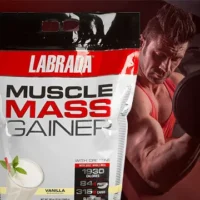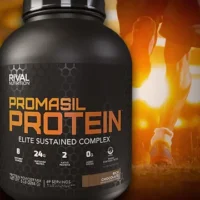Knowledge BaseYou're Questions Answered
How do protein powders work?
Protein powders are supplements designed to provide a concentrated source of protein and provide an essential macronutrient needed for muscle repair, growth, and maintenance. They work by supplementing your regular diet, especially in situations where your dietary intake might not be sufficient to meet your body's protein requirements.
The digestive process starts in the stomach, where the protein powder is mixed with stomach acid to break down the large protein molecules into smaller peptides. These peptides are then transported into the small intestine, where they are broken down further into individual amino acids by digestive enzymes.
Once the protein is broken down into individual amino acids, they are absorbed into the bloodstream and transported to various parts of the body where they are used for a variety of functions. Some of the amino acids are used to build and repair tissues, such as muscles, while others are used to produce hormones and enzymes. Additionally, some of the amino acids can be converted into glucose and used as an energy source.
The body needs a sufficient supply of essential amino acids to support various functions, and protein powders can help individuals increase their daily protein intake. For people who engage in physical activity or want to build muscle, increasing protein intake can support muscle growth and recovery. Additionally, for individuals who are not able to meet their protein needs through food alone, protein powders can be a convenient and effective way to supplement their diet.
Functionality of Protein Powders
- Support Muscle Growth: Consuming protein powder, particularly after exercise, can stimulate muscle protein synthesis, the process by which the body repairs and rebuilds muscle fibers. This is crucial for those involved in regular physical activities or strength training1.
- Enhance Recovery: Protein powders provide essential amino acids needed to repair and reduce muscle damage caused by intense exercise. This quickens recovery times and reduces muscle soreness2.
- Promote Weight Management: Due to their satiating properties, proteins can help control appetite by making you feel fuller longer, thereby potentially reducing overall calorie intake and aiding in weight loss or management3.
- Improve Overall Nutrition: Protein powders can also serve as a nutritional supplement for those with increased protein needs such as athletes, elderly individuals, and those recovering from illness, or for vegetarians and vegans who might find it challenging to meet protein requirements through diet alone4.
Types of Protein Powders
There are various types of protein powders available, each derived from different sources and processed in ways that affect their digestion rate and nutrient profile:
- Whey Protein: Fast-digesting and derived from milk, effective for post-workout recovery.
- Casein Protein: Slow-digesting, ideal for providing a steady release of amino acids, often taken before bed.
- Soy Protein: A plant-based option that is beneficial for vegetarians and vegans, containing all essential amino acids.
- Pea Protein: Another plant-based option, popular among those with allergies to dairy or soy.
When selecting a protein powder, it’s important to consider your dietary needs, any food allergies or sensitivities, and your overall health goals. The choice of protein powder should complement your diet and not be relied upon as the sole source of protein.
- Phillips, S. M. (2014). A brief review of higher dietary protein diets in weight loss: a focus on athletes. Sports Medicine, 44(S1), S149-S153.
- Biolo, G., Tipton, K. D., Klein, S., & Wolfe, R. R. (1997). An abundant supply of amino acids enhances the metabolic effect of exercise on muscle protein. The American Journal of Physiology, 273(1 Pt 1), E122-9.
- Paddon-Jones, D., & Leidy, H. (2014). Dietary protein and muscle in older persons. Current Opinion in Clinical Nutrition and Metabolic Care, 17(1), 5-11.
- Deutz, N. E., & Wolfe, R. R. (2013). Is there a maximal anabolic response to protein intake with a meal? Clinical Nutrition, 32(2), 309-313.
Related Questions
Protein vs Protein

Your Answer
We are a participant in the Amazon Services LLC Associates Program, an affiliate advertising program designed to provide a means for us to earn fees by linking to Amazon.com and affiliated sites.



